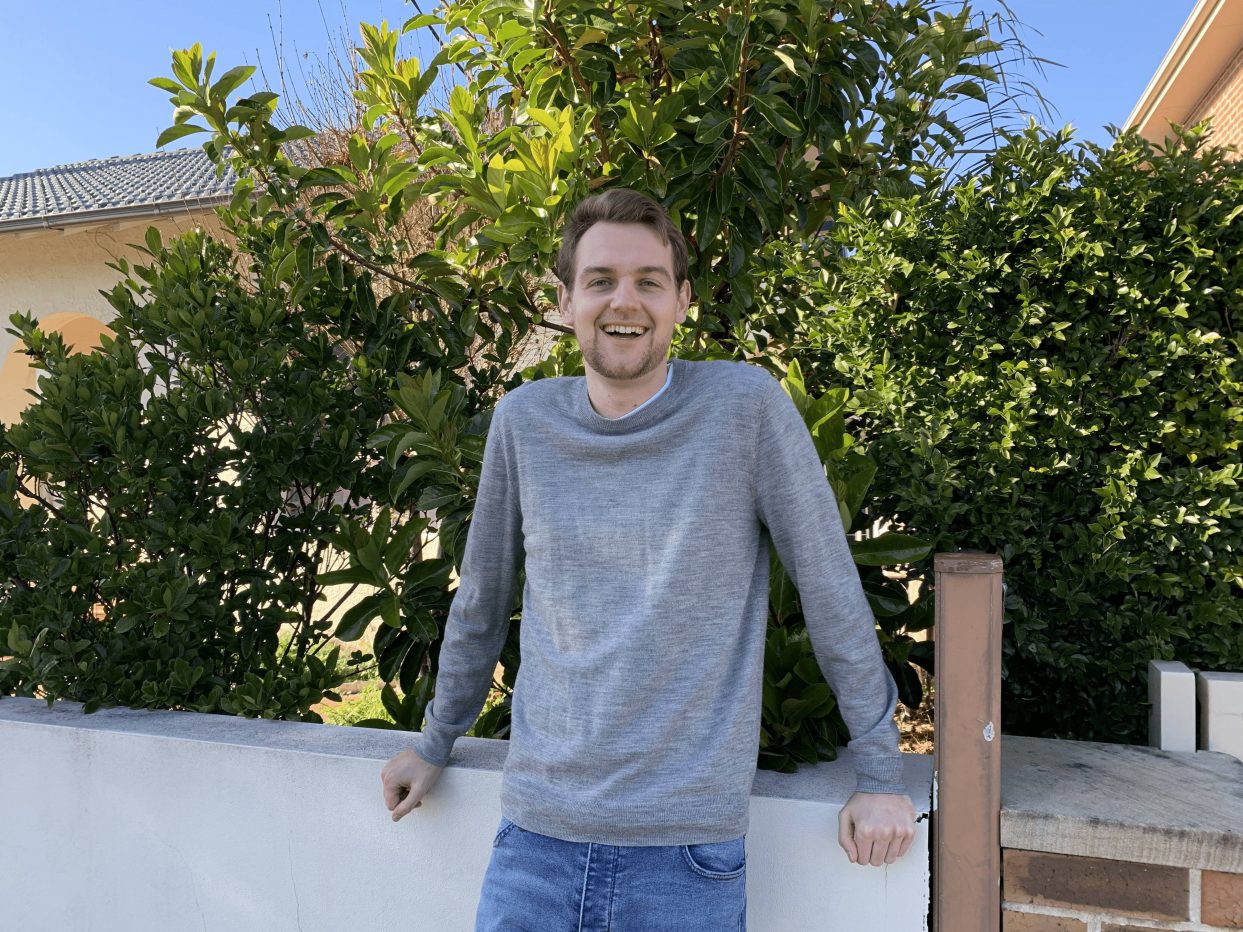At just 22, Peter Binns has already discovered the power of growing your wealth through passive investing strategies. He studied at University of Technology, Sydney and is a user experience designer and user interface designer who’s worked at companies like Google and Qantas on sustainability projects.
With his experience in AI and automation, it’s natural for Peter to visualise the future, and he talked to us about what sustainability means to him, and why he wants his money to contribute to a better future.
Why did you become interested in investing?
I got started in Bitcoin in 2015. I was very young and got into it before it became a hot topic, and threw a couple of thousand dollars at it. I didn’t have any financial knowledge, so I was thrown into the deep end pretty quick.
I made some massive wins and some massive losses, but it was enough to make me curious about investing. I had a bit of spare money in 2018 and I didn’t think there was much point if it just sat in a bank account, especially when interest rates had been ticking downwards for years.

What do you think of Bitcoin and cryptocurrency investing now?
I think the technology behind blockchain has inherent value, but cryptocurrency is harder to evaluate because it depends on adoption by the masses.
These days, I tend to stay away from crypto. I had my fun, but now I’d only invest if I was happy to get rid of that money – it’s like gambling.
How did you learn about ETFs?
One of the big things I learned from my Bitcoin experience is that it’s important to have varied investments, but it’s hard to pick and choose different investments….ETFs take that guesswork out, but unfortunately there’s no such thing as a cryptocurrency ETF.
Also, about two years ago, I read the Barefoot Investor. After that, I went down a rabbit hole, researching tonnes of investment options because I wanted to find something that would give me the lowest fees and make my life easy.
How did you learn about Stockspot?
I saw all sorts of great investment products in the US, but I had to do a bit of research before I found Raiz, Spaceship and Stockspot here in Australia. I put everything into a spreadsheet, and I asked questions like, “can I automate it? Will I actually own shares?”
Stockspot made the most sense, so I started a portfolio.
What are the attitudes of your friends to the share market?
People say things like “oh I should’ve bought Afterpay, but despite this desire to make money, they’re still scared of putting money into the market.
Still, I’d also say that 90% of my friends look at investing as long-term, they don’t think of investing as a get-rich-quick scheme.
Do you think sustainability has become more of an issue for the younger generation in recent times?
Yes, especially this year with the bushfires and coronavirus. I’ve noticed lots of 18 to 28 year olds are making big changes to their habits recently. They’re getting into carbon offsetting and want to support businesses that have carbon neutral badges.
I work in the aviation industry, and there’s a trend around flight shaming and the carbon produced from airlines. A lot of research is going into the future of aviation because the younger generation isn’t happy with the way things are.
Why does sustainable investing matter to you?
You might not be able to change the values of big organizations directly, but if you invest your superannuation or other investments in a particular way, it sends a message.
I don’t need to promote gambling. I don’t need to promote child labor. So I’m matching my ethics to where I’m putting my money. Otherwise you’re just virtue signalling without any action.
Why invest in sustainable ETFs instead of directly buying the shares of sustainable companies?
It’s about diversity: you don’t want to put all your eggs in one basket. I don’t enjoy stock-picking. I don’t like spending all my time researching. If I can put something on autopilot mode, it puts my mind at ease.
The other thing I thought about was cost. With an ETF, it might only cost me a few dollars a month to go sustainable, and the performance is still high…and in some cases it’s even higher.
Do you think that sustainable investing is the way of the future?
Yes, for sure. Let’s say there are two companies and they offer the exact same thing. Except one is carbon-neutral and the other one isn’t. A customer is more likely to see the carbon neutral aspect as a value proposition and choose that company.
I think the same thing goes for investing. I think people like the feeling of knowing their money is going into something ethical or sustainable. As a long term investor, I want to be able to say in 40 years, my actions and values helped make the world a better place.
What are your personal financial goals?
I don’t want to be on a yacht for the rest of my life – it’s more about financial independence for me. In 30 or 40 years, I want to thank my younger self for setting up direct deposits and dollar-cost averaging (putting it a little more money here and there), so that I can have a bit of freedom.
Do you feel confident that your Stockspot portfolio is going to help you achieve your goals?
I do feel confident. If I was to do it by myself, I wouldn’t be as confident because it’s a massive risk, but I think the way I’m diversifying at the moment makes me feel comfortable.
What other changes have you made in your life around sustainability?
I like to think of simple shifts that can lead to a big impact. Things like using public transport, or thinking about the food supply chain or the clothing supply chain. Where are my sneakers from? Where are my clothes from?
I’m willing to pay $10 to $20 extra or go a little out of my way so I can be comfortable that I’m having less of an impact on the world.
Any other words?
I think people know that things have to change at a systemic level, and things can only change at a systemic level if everyone’s doing the things that are relatively simple to do. And a lot these small changes might actually be better for you as an individual.
This interview has been edited for clarity and length.



